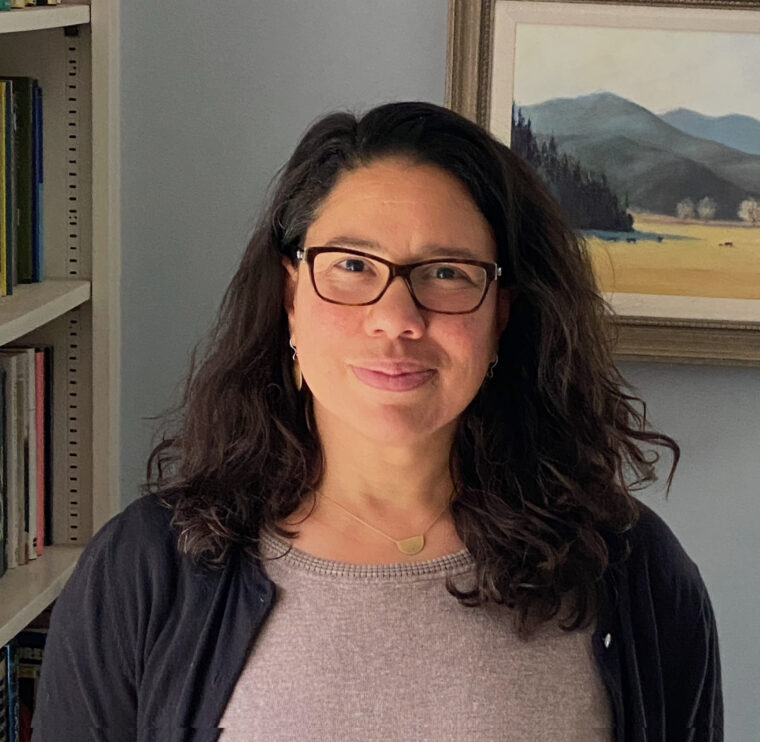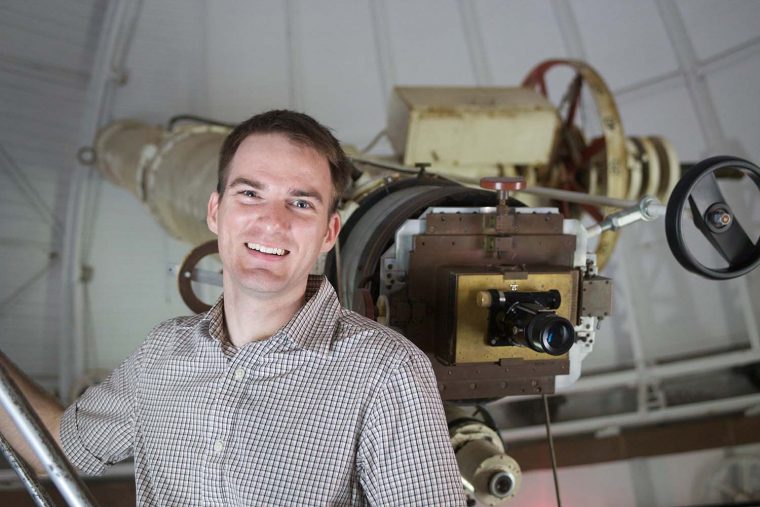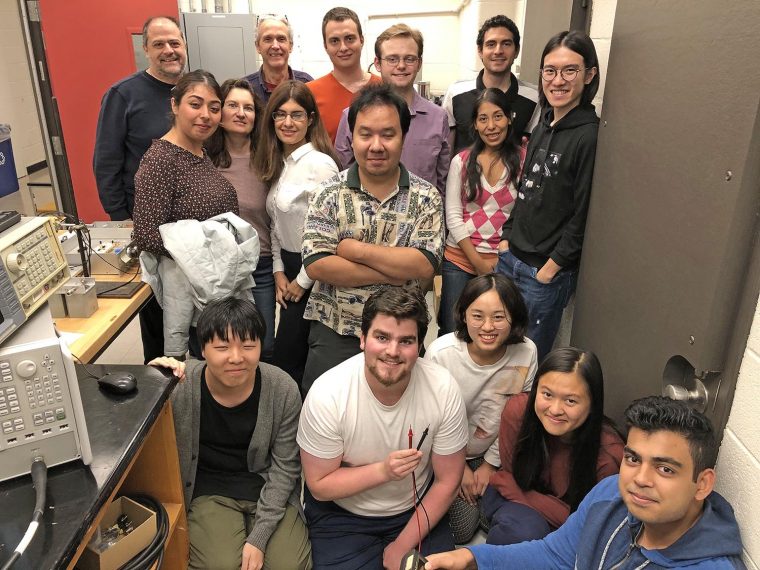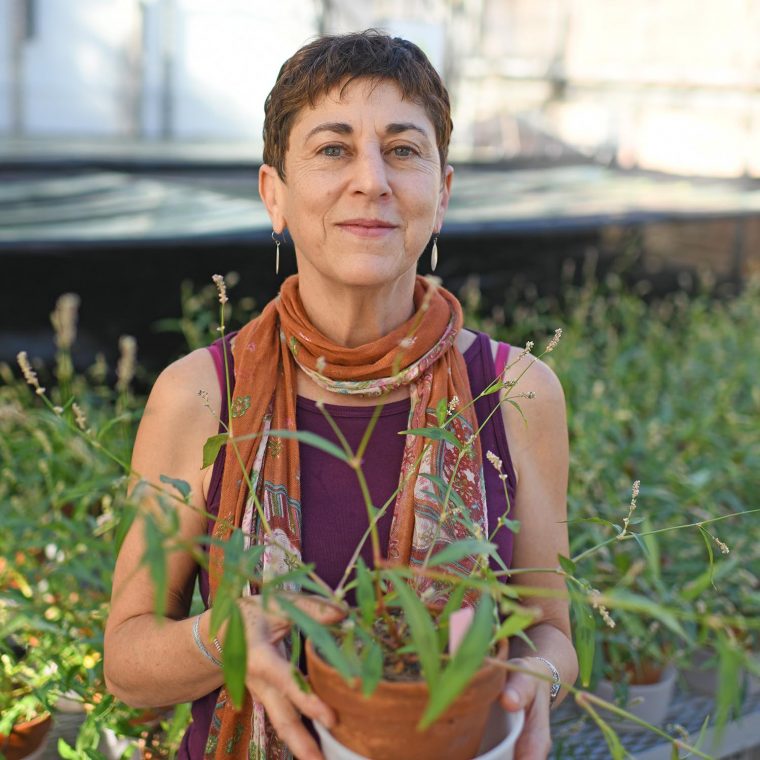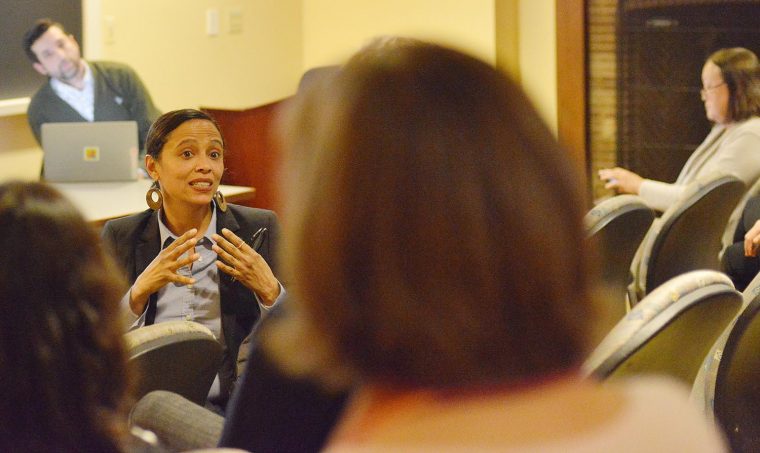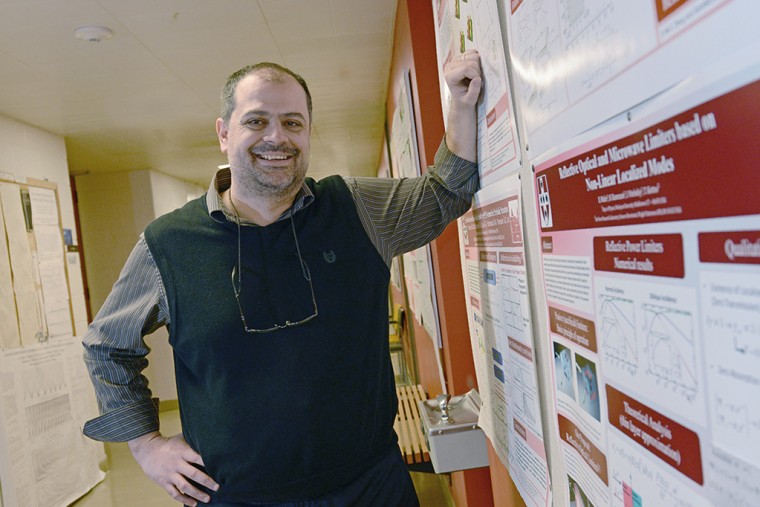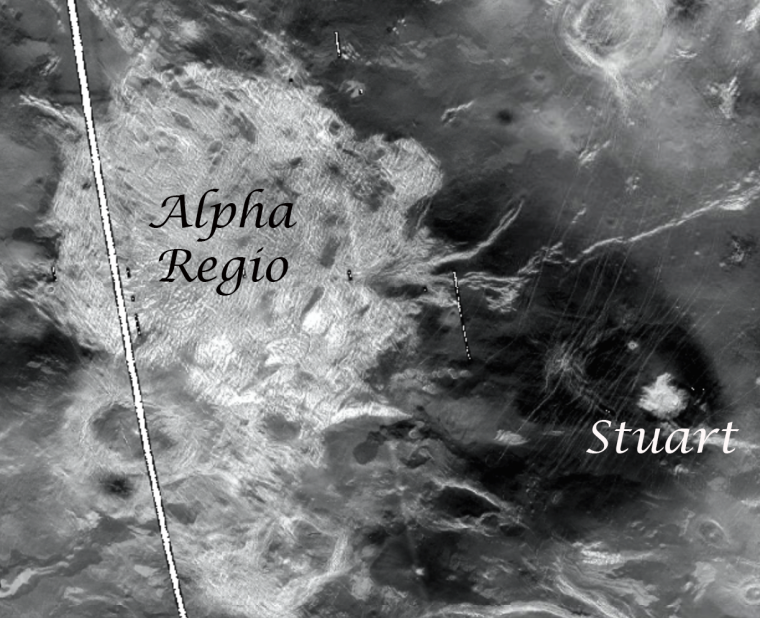With the support of a five-year, $1.1 million grant from the National Institutes of Health (NIH), Teresita Padilla-Benavides will study how transition metals—such as copper—contribute to the development of muscle. The monetary award, called an NIH Research Project Grant (NIH R01), aims to support research and development in health-related fields that bolster the mission of the NIH. “Thanks to this award, we will be able to investigate novel molecules and their association with transition metals, such as copper, and how they contribute to the development of muscle,” said Padilla-Benavides, assistant professor of molecular biology and biochemistry. “My project will investigate…
Two proposed Venus mission concepts co-developed by planetary geologist Martha Gilmore were selected by NASA’s Discovery Program this week. The selected missions aim to understand how Venus became a scorching planet after it was potentially another habitable world in the solar system with an Earth-like climate. Gilmore, George I. Seney Professor of Geology, professor of earth and environmental sciences, is a co-investigator of both winning concepts. Each project will receive approximately $500 million per mission for development and is expected to launch in the 2028–2030 timeframe. The projects include VERITAS (Venus Emissivity, Radio Science, InSAR, Topography, and Spectroscopy) and DAVINCI+…
If a spacecraft were to quickly travel outside the solar system—potentially en route to a nearby exoplanetary system—it would need to pass through an atmosphere unfamiliar to scientists on Earth. As a recipient of a $415,000 grant from NASA, Seth Redfield, chair and associate professor of astronomy, hopes to learn more about the mysterious makeup of this "outer space." "There are several very early designs for an interstellar probe, but first, we need to understand the properties of the space in between the stars if you are traveling through it, especially at high speed," Redfield said. "Given the vastness of…
Three Wesleyan faculty recently received Academic Research Enhancement Awards (R15) from the National Institutes of Health (NIH). R15 grants stimulate research at educational institutions that provide baccalaureate training for a significant number of the nation's research scientists, but that have not been major recipients of NIH support. Awards provide funding for small-scale, new, or ongoing health-related meritorious research projects, enhancing the research environment at eligible institutions and exposing students to research opportunities. Amy MacQueen, associate professor of molecular biology and biochemistry, received a $492,900 award on Aug. 7 for her research titled "How do Synaptonemal Complex Proteins Mediate the Coordinated?" MacQueen…
Martha Gilmore, the George I. Seney Professor of Geology, professor of earth and environmental sciences, believes we have a lot to learn from studying Venus—yet the United States has not sent a mission to the Earth-sized planet since the early 1990s. That’s why Gilmore has proposed a major flagship mission concept study to assess whether Venus was ever a habitable planet by looking at its rocks and atmosphere. In October, NASA agreed to fund the planetary mission concept on Venus submitted by Gilmore, a planetary geologist, and colleagues at several other institutions, who come from varied disciplines. Gilmore, who is…
The Physics Department's Wave-Transport Lab recently received awards totaling $709,000 to support its ongoing aim to understand and manipulate the movement of waves—sound, mechanical, or electromagnetic—through natural or human-made materials. The lab received a $340,000 grant from the National Science Foundation's Division of Civil, Mechanical, and Manufacturing Innovation program titled "Engineering Dynamical Symmetries for Extreme Wave-Matter Interactions in Elastodynamics," and a $369,000 grant from the Department of Defense's Office of Naval Research (ONR) titled "Waveform Shaping Techniques for Targeted Electromagnetic Attacks." The Wave-Transport Lab was established in 2016 when Fred Ellis, chair and professor of physics, and Tsampikos Kottos, the…
With support from a $2 million John Templeton Foundation National Sciences grant, Professor of Biology Sonia Sultan will spearhead a multi-institution evolutionary biology research project over the next three years. The project, titled "Agency in Living Systems: How Organisms Actively Generate Adaptation, Resilience and Innovation at Multiple Levels of Organization," developed from Sultan's research on how individual organisms respond to their environments. Sultan and her Wesleyan research group study this question through experiments with the common plant Polygonum. Sultan's previous findings have shown that genetically identical Polygonum plants can develop very differently depending on their growth conditions, allowing adaptive adjustments…
Hilary Barth and Andrea Patalano, both professors of psychology, have received a major grant from the National Science Foundation (NSF) to support collaborative research on numerical cognition. The three-year $1,091,303 grant, which is funded by NSF’s EHR Core Research program focused on STEM learning, includes support for Wesleyan student participation in the proposed research project, which will involve experimental studies of children’s and adults’ understanding of, and judgments about, number and quantity. The two labs collaborate frequently, and have been working jointly on another project for the past three years supported by an earlier NSF grant. The new project is distinct,…
With the support of a new $500,000 grant, Wesleyan will be able to expand its Digital Design Studio and integrate technology more fully into the University's arts program. The Sherman Fairchild Foundation awarded Wesleyan the grant in March. It will be applied over four years. "We're very grateful for this award," said Nicole Stanton, dean of the Arts and Humanities Division and associate professor of dance. "The grant will enable Wesleyan to integrate technology more fully into our arts program, support the innovative work of our faculty and students, and expand cross-disciplinary opportunities within the arts and with other disciplines."…
Tsampikos Kottos, professor of physics, and Wesleyan University will lead a complex, multi-institution initiative to research and develop the next generation of national instrumentation technology thanks to a four-year, $2,794,606 grant from the Defense Advanced Research Projects Agency (DARPA). Awarded this August, the grant is the culmination of at least eight years of photonics research by Kottos and his fellow collaborators, and will have significant implications for the future of a variety of technologies employed by the federal government and the private sector. An agency of the U.S. Department of Defense, DARPA funds research and development projects that push the…
Wesleyan has received a two-year $165,699 grant under the U.S. Department of Education’s Undergraduate International Studies and Foreign Language (UISFL) program to support the teaching of Hindi and Urdu, the research of STEM faculty and students in India, and the increase of cultural programming related to South Asia. “This grant will allow Wesleyan to become one of a very small number of liberal arts institutions in the country with classroom instruction in Hindi and Urdu,” said Stephen Angle, director of the Fries Center for Global Studies. “We are excited about the ability this grant will give us to support STEM…
Like planet Earth, the geology of Venus is diverse; consisting of areas of flat plains and deformed, mountain-like terrains called tesserae. And like Earth, Mars, and the Moon, Venus is checkered with hundreds of craters. “What's odd about Venus's craters, is that craters we do see are relatively young, indicating the surface of Venus has been covered by planet-wide volcanic flows," says Martha "Marty" Gilmore, George I. Seney Professor of Geology, professor of earth and environmental sciences. “The tesserae are the only terrains older than these volcanic flows and thus our only hope at accessing rocks from the first billion…



